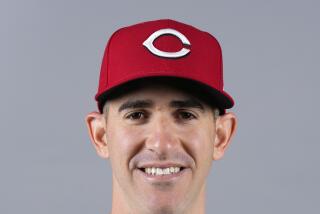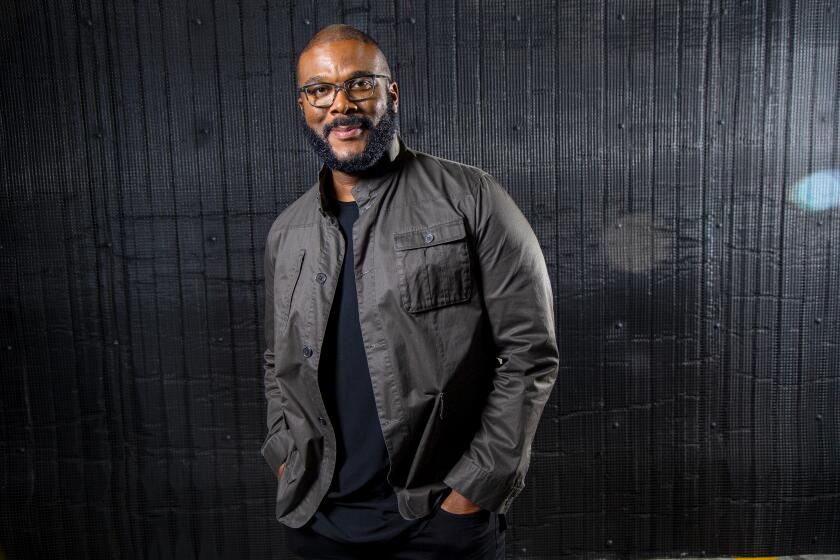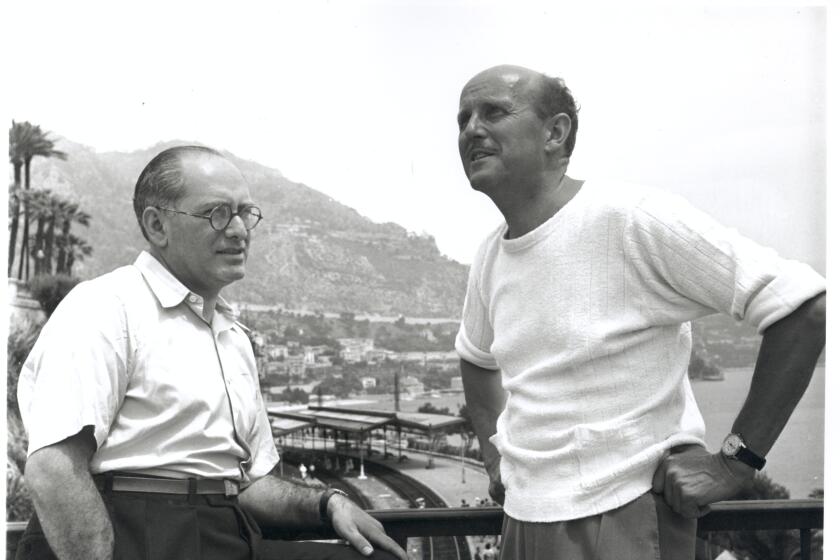Review: ‘On the Map’ reveals the basketball contest that gave Israel a sense of sporting and national pride
Sport, it’s been said, is the toy department of our culture, but even diversions can have their moment of unforeseen socio-political relevance.
That’s what happened in 1980, when a young U.S. Olympic ice hockey team surprised the mighty Soviets and won the gold medal in a contest that’s been described as the Miracle on Ice.
In a different sport three years earlier, and as detailed in the genial documentary “On The Map,” Israel experienced a similar epochal moment that shifted the national culture.
That was when the country’s Maccabi Tel Aviv team, with six Americans led by the charismatic Tal Brody, won the European Cup basketball championship in a tournament that had resonance above and beyond the final victory.
For it was after Maccabi’s miraculous semi-final win over CSKA Moscow, the fearsome Red Army team, that the over-the-moon Brody told a television interviewer, “We are on the map. And we are staying on the map — not only in sports but in everything.”
Israeli director Dani Menkin has been especially thorough in telling this classic against-all-odds sports story. He interviews Brody and his teammates, Israeli sports figures and American basketball luminaries like coach Digger Phelps, former NBA Commissioner David Stern and an enthusiastic Bill Walton, a former teammate of Brody’s on America’s 1970 national team.
Menkin also helps us understand why that casually uttered Brody phrase became a sensation, resonating in Israel for decades in a way that is fascinating from a historical perspective but also leads to some reflections about what is different in the world today.
The key figure in “On the Map” is obviously Brody, a fluid 6-foot-1 point guard from Trenton, N.J., who had the skills to be drafted 12th by the then-Baltimore Bullets (now the Washington Wizards) in 1965.
But before the NBA season began, Brody went to Israel to compete in the Maccabiah Games, and that experience turned him in a completely different direction. Encouraged by the owners of the Maccabi Tel Aviv team and the celebrated Gen. Moshe Dayan, he decided he wanted to be part of something bigger than the NBA, he wanted to take basketball in Israel to another level.
This idea took firmer shape in the early 1970s, when other American players, some Jewish, some not, were persuaded to join Brody. The last piece of the puzzle, 6-foot-10 center Aulcie Perry, was signed after a competing center ate so much at a team banquet that the coach was afraid he would hog the ball.
No Israeli team had ever gotten past the first round in the European Cup tourney, but “On the Map” focuses in a game-by-game way on why the 1977 event turned out to be different.
Each contest had its own drama, and we both hear about it through memories and watch chunks of the contests themselves via game footage and home movies shot by rabid fans.
That semi-final game against the U.S.S.R. was problematic for several reasons, starting with the fact that the Soviets did not recognize Israel at the time and initially refused to even play before a neutral court was found in the tiny Belgian town of Virton.
Given that CSKA Moscow had several players from the national team that had beaten the U.S. in the 1972 Olympics, the Tel Aviv team shouldn’t have had a chance, which gave Israel’s victory so much resonance that former Soviet dissident Natan Sharansky, also interviewed here, says it helped sustain him during nine years in a Siberian prison camp.
While the final game against an Italian team was so watched in Israel that Prime Minister Yitzhak Rabin postponed the announcement of his resignation until it ended, Brody’s quote became the memory that lasted.
It was, in its exuberance, perfect for a time when Israel was seen and saw itself as a plucky underdog on the world stage. Whether justifiably or not, that perception has changed, and without really meaning to, “On the Map” brings today’s situation into sharper focus.
===
‘On the Map’
No MPAA rating
Running time: 1 hour, 25 minutes
Playing: Laemmle’s Royal, West Los Angeles
See the most-read stories in Entertainment this hour »
Movie Trailers
More to Read
Only good movies
Get the Indie Focus newsletter, Mark Olsen's weekly guide to the world of cinema.
You may occasionally receive promotional content from the Los Angeles Times.







